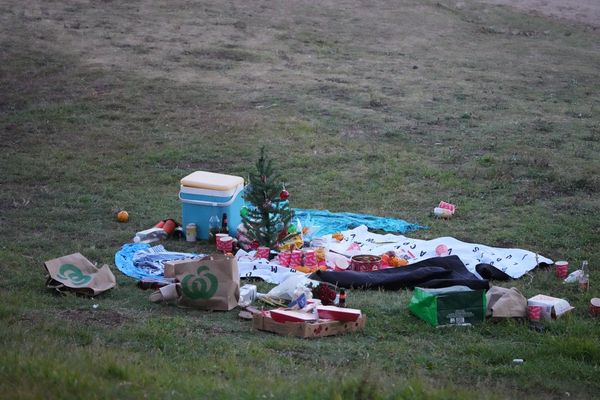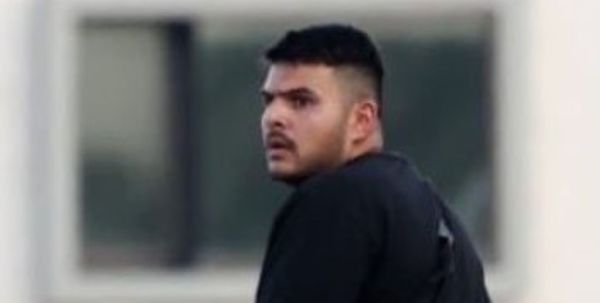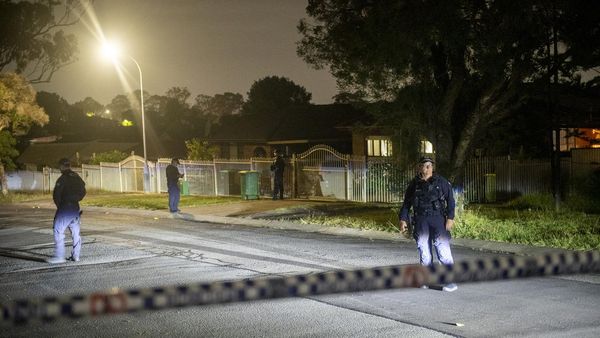
Greek authorities have stepped up security in two harbours in an attempt to keep protesters away from a cruise liner carrying Israeli tourists on an 11-day tour around the Mediterranean.
The measures taken at Patras and Katakolo in the Peloponnese followed demonstrations when the MS Crown Iris docked at Kalamata earlier this week. In July passengers on the same ship were prevented from disembarking and it was forced to divert to Cyprus after local people staged a protest in support of Palestine on the Cycladic isle of Syros.
Christina Lada, a schoolteacher who participated in the Kalamata demonstration, said protesters felt like they “couldn’t keep quiet” in the face of Israel’s actions in Gaza since the ceasefire that came into effect on 10 October.
“Despite the ceasefire, Israel is still continuing its attacks in Gaza,” she said. “Innocent, unarmed civilians are being killed.”
From the upper deck of the ship, and on buses flanked by armed officers, passengers watched as the crowds in Kalamata shouted: “You need the police, you’re not welcome in Greece.”
Yannis Sifanakis, a leading campaigner who spent the summer organising anti-war protests across Greece – an increasingly popular destination for Israelis – said: “Those Israelis who support the actions of their government aren’t welcome here.”
Sifanakis said the rallies were driven by anger over what was happening in a region many Greeks regard as an inherent part of the Mediterranean and, as such, home.
Constantine Filis, an international relations expert who heads the ACG Institute of Global Affairs in Athens, said: “Because of geographic proximity and our traditional ties with the Arab world, the average Greek is more sensitive to what is happening in Gaza than the average central or north European.
“Greece is in a difficult position. Israel is much more important for us as an ally and partner than it is for most European states.”
Some hospitality groups and municipalities have criticised the protests as antisemitic and unacceptable, and at the national level the centre-right government of Kyriakos Mitsotakis has been put on the defensive.
More than 600,000 Israelis visited Greece in 2024, according to official data, with forecasts of even higher numbers this year. The large number of arrivals underscores the much-improved relationship between the two countries since the 1980s, when Greek administrations took a staunchly pro-Palestinian stance.
Athens was the last EU capital to officially recognise Israel – a move made by Mitsotakis’ father, Konstantinos, during his one term as prime minister 35 years ago. Since 2010, the two nations have forged what officials describe as a significant strategic alliance based on economic and diplomatic cooperation and deepening military and energy ties.
For the Greek government, Israel is not only a crucial counterweight to regional rival Turkey but offers the added bonus of improved diplomatic access to Washington.
“Greece is not going to risk its relations with Israel,” said Filis. “But from a humanitarian perspective we must be more inclusive, more balanced, more determined to demonstrate the wrongdoings of Israel in Gaza.”
The scale of the Greek protest movement has clearly taken Israel aback. In August, the country’s foreign ministry warned visitors to keep a low profile, and local media referred to Athens – where anti-Israeli graffiti has appeared on buildings in the city centre – as a “paradise lost”.
Israel’s resident ambassador, Noam Katz, accused Athens’ mayor, Haris Doukas, of not doing enough to remove what he said was “antisemitic graffiti of organised [radical left] minorities” that was making his compatriots feel uncomfortable.
“Of course we’re worried,” said Victor Eliezer, secretary-general of the Central Board of Jewish Communities in Greece. “The sort of rhetoric we’re hearing can so easily become antisemitic … I’m not the first Jew to say it, but a lot of us condemn the extremist positions of ministers in the Israeli government, that do not express the views of the majority of Jews in the diaspora and Israel.”
The protests against the Crown Iris had been “a particularly unpleasant phenomenon”, he added.
Increasingly, opponents have Athens’ close ties with Israel in their sights.
As many as 5,000 people recently travelled to Crete to demand the closure of the Souda Bay naval base, a Nato facility that since the outbreak of war in Gaza has been a key refuelling post for US aircraft carriers, fighter planes and ships bound for Israel.
“There have been victories,” said Petros Constantinou, who coordinates Keerfa, Greece’s anti-racist movement. “Our main demand, now, is to stop any collaboration with Israel.”







